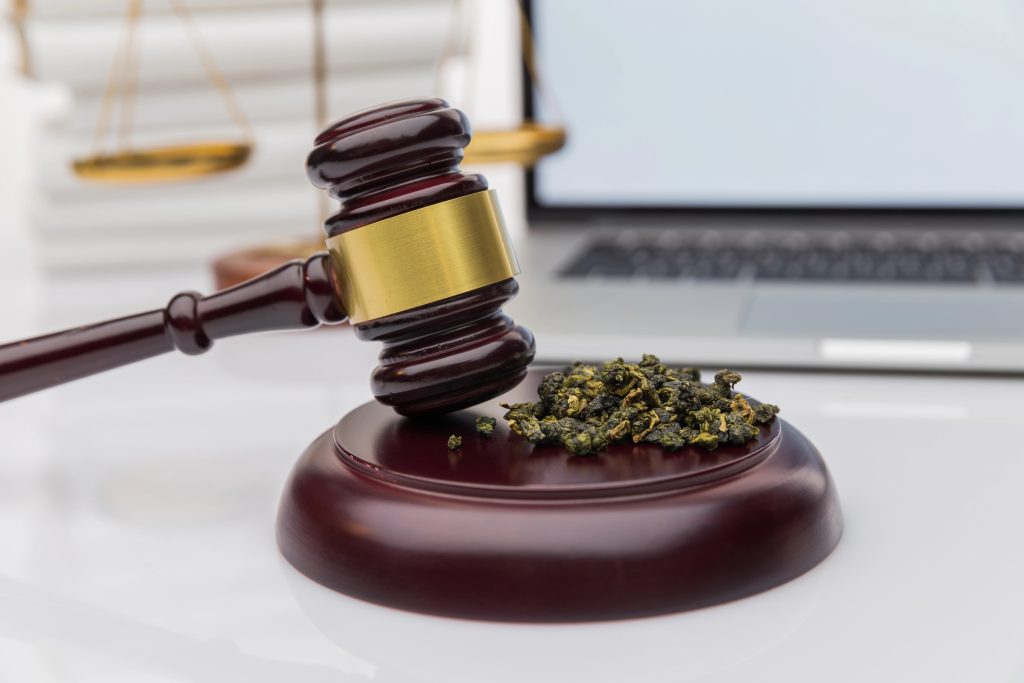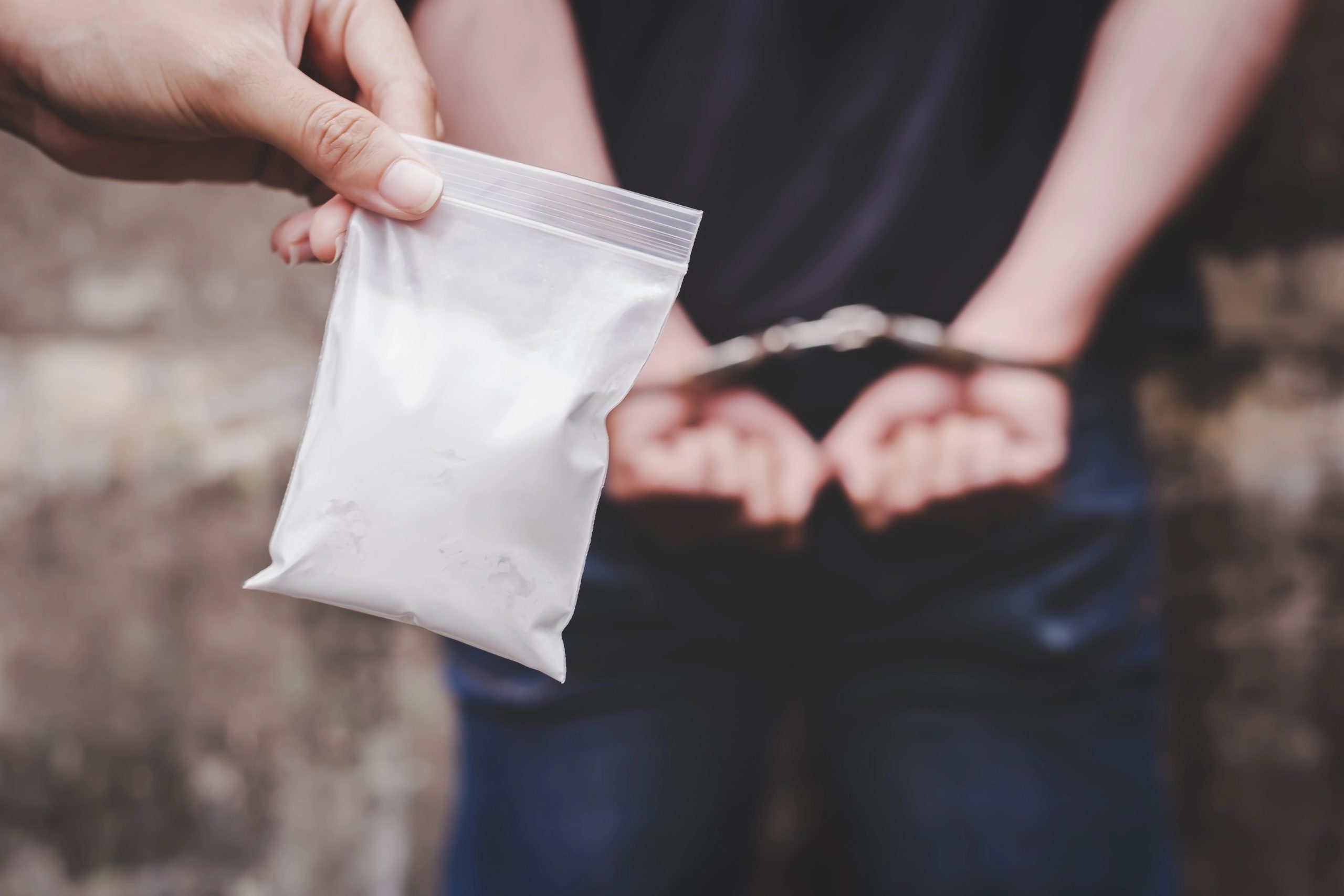An Arlington Drug Crime Lawyer Provides Solid Legal Defense
A drug charge can feel like a life sentence, but it doesn’t have to define your future. In Texas, these charges carry serious consequences, with significant imprisonment and fines. However, the right legal strategy can help you reclaim your future. An Arlington drug crime lawyer builds a solid defense and guides you to make informed decisions about your case.
This article delves into Texas drug laws, outlining various drug-related offenses and potential defenses. Discover how skilled representation can help you understand your options and confidently navigate the path ahead. By the end, you’ll have a clearer picture of your situation and the insights to protect your rights.

Texas Drug Laws Explained
The Texas Controlled Substances Act serves as the foundation for drug laws in the state. It categorizes substances into Penalty Groups 1 through 4, determining the severity of criminal charges and penalties. Each group reflects the substance’s medical use, potential for addiction, and risk to public health.
Penalty Group 1
Penalty Group 1 includes highly dangerous drugs such as opiates, cocaine, methamphetamine, fentanyl, and ketamine. These substances are notorious for their addictive nature and lack of accepted medical use, leading to severe penalties for related offenses.
Possession of less than one gram constitutes a state jail felony, with imprisonment ranging from 180 days to a maximum of two years. Amounts ranging from one to four grams can lead to a third-degree felony, which carries a jail sentence of two to 10 years. Possessing larger quantities can lead to sentences of up to life imprisonment and fines reaching $100,000.
Penalty Group 1-A
Drugs like lysergic acid diethylamide (LSD) and its analogs fall under Penalty Group 1-A. This category differs from other Group 1 substances because it measures dosage in units instead of weight. This hallucinogen is highly potent and unpredictable, which makes related offenses subject to strict penalties. Possession of fewer than 20 units constitutes a state jail felony, while higher amounts lead to escalating charges.
Penalty Group 1-B
Fentanyl and its analogs are included in Penalty Group 1-B, reflecting the growing concern over this drug’s widespread abuse and fatal consequences. Possession of these controlled substances results in penalties identical to those in Group 1, ranging from state jail to enhanced first-degree felony.
Penalty Group 2
This category includes hallucinogens like phencyclidine (PCP) and central nervous system depressants. While slightly less severe than Group 1, these substances still pose significant risks. Possession of less than one gram is considered a state jail felony, while amounts between one and four grams lead to third-degree felony charges. For larger quantities, sentences can range from five to 99 years and up to $50,000 fines.
Penalty Group 2-A
Synthetic marijuana products, including K2 and spice, are classified in Penalty Group 2-A. These substances, while marketed as harmless alternatives to natural cannabis, have unpredictable and sometimes dangerous effects. Possessing less than two ounces of these substances is a Class B misdemeanor. It can result in a punishment of up to 180 days in jail and a maximum of $2,000 fine. Larger quantities can result in Class A misdemeanor or felony charges.
Penalty Group 3
This group includes prescription drugs like Ritalin and Xanax, which have legitimate medical uses but are prone to misuse. Penalties for illegally possessing less than 28 grams of these substances lead to a Class A misdemeanor. This charge carries a potential jail sentence of up to one year and fines up to $4,000. However, as the quantities increase, the charges become felonies with much harsher consequences.
Penalty Group 4
Drugs in this group include mixtures containing controlled substances and medicinal ingredients, such as codeine-based cough syrups. These substances are considered to have low abuse potential but still come with penalties for unauthorized possession. Charges involving less than 28 grams are treated as a Class B misdemeanor, while larger quantities lead to felony charges.
Texas structures penalties around these classifications to address the risks associated with controlled substances. However, the state’s laws go beyond possession offenses. They also include charges and penalties for other related activities, reflecting the broader scope of drug-related crimes.
Types Of Drug Crimes In Texas
Drug crimes in Texas encompass a variety of activities, each carrying penalties based on the offense’s nature and severity. Understanding these distinctions can help individuals accused of such crimes better grasp the charges they face. Here are the primary types of drug offenses under state law:
- Possession: This charge involves knowingly having a controlled substance without legal authorization. Penalties depend on the drug’s Penalty Group and quantity.
- Manufacture and Distribution: Cultivating, processing, or distributing controlled substances is a severe offense. Penalties escalate with the drug’s danger level and the volume produced or distributed.
- Trafficking: This offense includes selling, transporting, or distributing illegal drugs. Cases involving large quantities or minors can face enhanced penalties under state or federal law.
- Drug Paraphernalia: Items like scales, syringes, or pipes used for drug activity can lead to paraphernalia charges. While often a misdemeanor, they can complicate more severe charges.
Each drug offense has specific legal standards, and how you handle your case can significantly affect its outcome. To tackle these charges effectively, you need an experienced drug crime lawyer who can create a strategic plan to protect your rights.
How An Arlington Drug Crime Lawyer Can Help You
Texas law imposes some of the harshest penalties for drug offenses in the country, and the legal process can feel unforgiving. A skilled Arlington drug crime attorney can help you navigate this challenging time. With their knowledge of the law and courtroom procedures, they can efficiently assist you at every stage of your case.

Guide You Through Drug Laws
An experienced lawyer thoroughly understands Texas drug laws, including how charges are classified and penalties are determined. They can shed light on how these laws apply to your case and highlight key factors that could impact its outcome. These may include the type of substance involved or any prior offenses.
Negotiate Plea Deals
Sometimes, resolving your charges outside of court serves your best interest. An experienced attorney can negotiate with prosecutors to seek reduced charges or lighter penalties. This might involve securing alternatives to incarceration, such as probation, drug treatment programs, or fines and restitution, which could minimize the potential consequences of a conviction.
Give You Proper Legal Advice
A skilled attorney offers sound legal advice tailored to your situation. Whether you fight your charges in court or accept a plea deal, they can explain your options and their potential consequences. This insight helps you understand the long-term impact of each choice, from criminal records to sentencing outcomes.
Provide Strong Legal Representation
If your case goes to trial, a lawyer on your side can make a difference. They will build a defense strategy based on the facts of your case, challenge the prosecution’s evidence, and uphold your rights. From pretrial motions to cross-examining witnesses, attorneys work tirelessly to present a strong defense on your behalf.
A skilled lawyer ensures no stone is left unturned in your defense. As they craft a strategy to fight your charges, they explore specific approaches in drug crime cases applicable to your circumstances.

Legal Defenses Against Drug Crime Charges
Defending against drug crime charges requires more than just understanding the law. It demands a skilled attorney who can assess the facts and build a strong case. With the stakes as high as your freedom and future, an advocate who can strategize to shield you from conviction becomes invaluable.
- Unlawful Search and Seizure: If evidence was obtained without probable cause or valid warrant, it may be inadmissible in court. This defense challenges whether law enforcement respected constitutional protections during the investigation.
- Lack of Knowledge or Intent: You must have knowingly possessed or intended to use or distribute drugs to be convicted. A lawyer can argue that you were unaware of the substance or its presence, such as drugs planted by another party.
- Entrapment: Entrapment occurs when police coerce or pressure an individual into doing a crime they otherwise would not commit. This defense requires showing that the violation resulted primarily from law enforcement’s influence rather than your free will.
- Mistaken Identity: In chaotic situations, authorities may misidentify a suspect. A defense lawyer can argue that you are not connected to the drugs or crime scene, using alibi evidence or inconsistencies in witness testimony.
- Insufficient Evidence: The prosecution proving guilt beyond a reasonable doubt is essential. If gaps or inconsistencies exist in their evidence, such as mishandled drugs or unreliable witnesses, your attorney can argue that the evidence fails to meet this standard.
These defenses illustrate how proper legal representation can effectively contest charges. Working with a reputable Arlington drug crime law firm ensures the meticulous review of your case and vigorous protection of your rights.
The Medlin Law Firm Fights For You
Every drug charge in Texas begins with an accusation, but it does not always stand up to scrutiny. Law enforcement may act on faulty information, evidence can be mishandled, and procedural violations can occur during investigations. At The Medlin Law Firm, we examine these details to uncover weaknesses in the prosecution’s case. Our team is ready to step in and fight for you with the dedication your case deserves.
We dig into the facts, question the legality of searches, and challenge the evidence presented against you. Whether you’re facing accusations of possession, trafficking, or manufacturing, we tailor a defense strategy to your specific circumstances. With decades of experience navigating Texas drug laws and courtrooms, we know how to turn even complex cases into opportunities for a favorable outcome.
Your case is personal to us, and so is our approach. From negotiating plea deals to fiercely defending you in court, we are committed to protecting your rights and your future at every turn. The road ahead may seem uncertain, but with The Medlin Law Firm by your side, you’ll have skilled advocates working tirelessly to secure an advantageous resolution.
Summary
Texas drug laws classify controlled substances into penalty groups, which determine the severity of charges and penalties. Whether accused of possession, trafficking, or manufacturing, convictions could lead to prison time and fines. Understanding how these classifications affect your case is vital, as they influence your defense strategies.
At The Medlin Law Firm, we know how to tackle even the challenging drug crime cases. With our commitment to personalized legal representation, we provide you with the guidance, support, and advocacy you need. Don’t wait to get help. Let our team build a solid defense that works for you.

